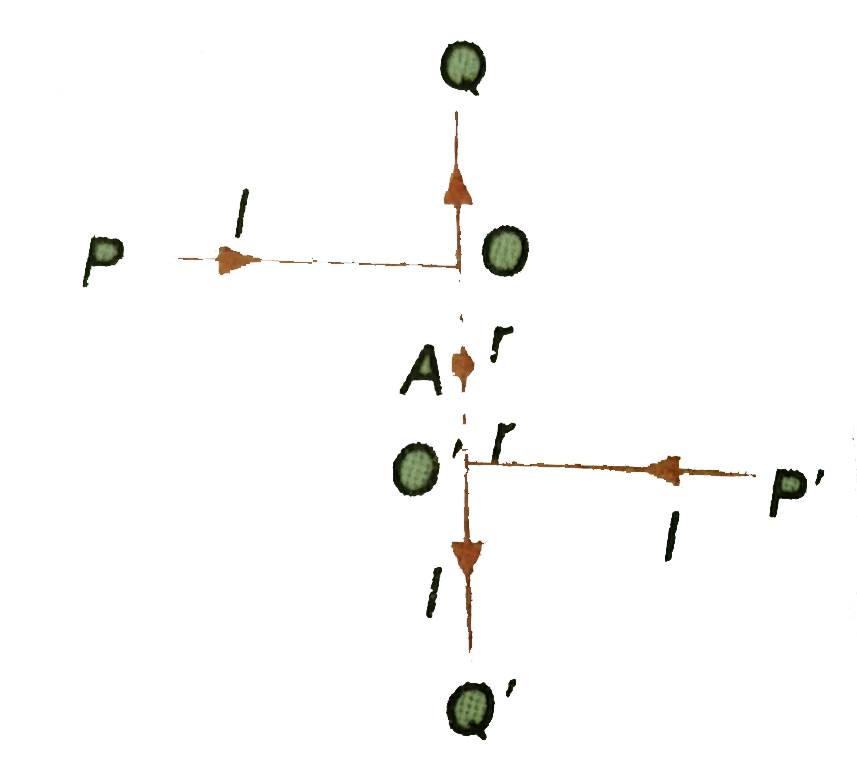An LC circuit has L =20 mH , C=50μF and initial charge 10 mC the resistance being negligible.
what is the total energy stored initially? IT is conserved during LC oscillator?Solution in Bengali
Total initial energy= 12Q2C=1210−450×10−6=11
IF R=0 , then total energy is conserved.
Topper's Solved these Questions
- ALTERNATING CURRENT BOOK - CHHAYA PUBLICATIONCHAPTER - ALTERNATING CURRENT EXERCISE - NCERT TEXTBOOK QUESTIONS WITH ANSWER HINT (MCQ-1)
4 Videos
- ALTERNATING CURRENT BOOK - CHHAYA PUBLICATIONCHAPTER - ALTERNATING CURRENT EXERCISE - NCERT TEXTBOOK QUESTIONS WITH ANSWER HINT (MCQ-2)
4 Videos
- ALTERNATING CURRENT BOOK - CHHAYA PUBLICATIONCHAPTER - ALTERNATING CURRENT EXERCISE - HIGH ORDER THINKING SKILL (HOTS) QUESTIONS
13 Videos
- BOOK - CHHAYA PUBLICATIONCHAPTER - EXERCISE - EXAMPLE
1 Videos
- ATOMBOOK - CHHAYA PUBLICATIONCHAPTER - ATOMEXERCISE - CBSE SCANNER
18 Videos
Similar Questions
A small town with a demand of 800 kW of power at 220 V is situated 15 km away from an electric plant generating power at 440 V. The resistance of the two wire line carrying power is 0.5Ω.km−1. The line gets power from the line through a 4000-220 V step-down transformer at a substation in the town.
Characterise the step-up transformer at the plant.
View SolutionThe current through an ac circuit first increases and then decreases as its frequency is increased. Which among the followings are most likely combination of the circuit?
View SolutionIn an oscillating LC circuit the maximum charge on the capacitor is Q. When the charge is stored equally between the electric and magnetic fields, what is the charge on the capacitor?
View SolutionThrough each of the two wires POQ and P'O'Q and electric current I is passing [Fig. 1.23]. The points Q,O,O and Q' are collinear. Determine the magnetic field at the midpoint A of OO'.

View SolutionUsing de Broglie's hypothesis , explain with the help of a suitable diagram , Bohr's second postulate of quantisation of energy levels in a hydrogen atom.
View SolutionAn LC circuit contains a 20 mH inductor and 25 mu F capacitor with an initial charge of 5 mC. The total energy stored in the circuit initially is
View SolutionAn LC circuit contains a 20 mH inductor and a 50 muF capacitor with an initial charge of 10 mC. The resistance of circuit is negligible. Let the instant the circuit is closed be t = 0. What is the total energy stored initially ? Is it conserved during LC oscillations ?
View SolutionAn LC circuit contains a 20 mH inductor and a 50 muF capacitor with an initial charge of 10 mC. The resistance of circuit is negligible. Let the instant the circuit is closed be t = 0. What is the natural frequency of the circuit ?
View SolutionAn LC circuit has L =20 mH , C=50muF and initial charge 10 mC the resistance being negligible. What is the natural frequency of the circuit?
View SolutionAn LC circuit has L =20 mH , C=50μF and initial charge 10 mC the resistance being negligible.
After what time interval from the moment the circuit is switched on the energy stored is (i) completely electrical i.e., stored only in the capacitor and (ii) completely magnetic ,i.e., stored only in the indicator?
View SolutionAn LC circuit has L =20 mH , C=50μF and initial charge 10 mC the resistance being negligible.
At what time is the total energy shared equally between the inductor and the capacitor?
View SolutionAn LC circuit has L =20 mH , C=50μF and initial charge 10 mC the resistance being negligible.
If a resistor is inserted in the circuit, how much energy is dissipated as heat?
View SolutionAn LC circuit contains a 20 mH inductor and a 50 muF capacitor with an initial charge of 10 mС. The resistance of the circuit is negligible. Let the instant the circuit is closed be t = 0. a. What is the total energy stored initially? Is it conserved during LC oscillations? b. What is the natural frequency of the circuit? c. At what time is the energy stored i. completely electrical (i.e., stored in the capacitor) ii. completely magnetic (i.e., stored in the inductor) d. If a resistor is inserted in the circuit, how much energy is eventually dissipated as heat?
View SolutionAn LC circuit contains a 20 mH inductor and a 50 μF capacitor with an initial charge of 10 mC. The resistance of the circuit is negligible. Let the instant the circuit is closed be t = 0.
(a) What is the total energy stored initially? Is it conserved during LC oscillations?
(b) What is the natural frequency of the circuit?
(c) At what time is the energy stored
(i) completely electrical (i.e., stored in the capacitor)? (ii) completely magnetic (i.e., stored in the inductor)?
(d) At what times is the total energy shared equally between the inductor and the capacitor?
(e) If a resistor is inserted in the circuit, how much energy is eventually dissipated as heat?
View SolutionAn LC circuit contains a 20 mH inductor and a 50 μF capacitor with an initial charge of 10 mC. The resistance of the circuit is negligible. Let the instant the circuit is closed be t = 0.
(a) What is the total energy stored initially? Is it conserved during LC oscillations?
(b) What is the natural frequency of the circuit?
(c) At what time is the energy stored
(i) completely electrical (i.e., stored in the capacitor)? (ii) completely magnetic (i.e., stored in the inductor)?
(d) At what times is the total energy shared equally between the inductor and the capacitor?
(e) If a resistor is inserted in the circuit, how much energy is eventually dissipated as heat?
View Solution
